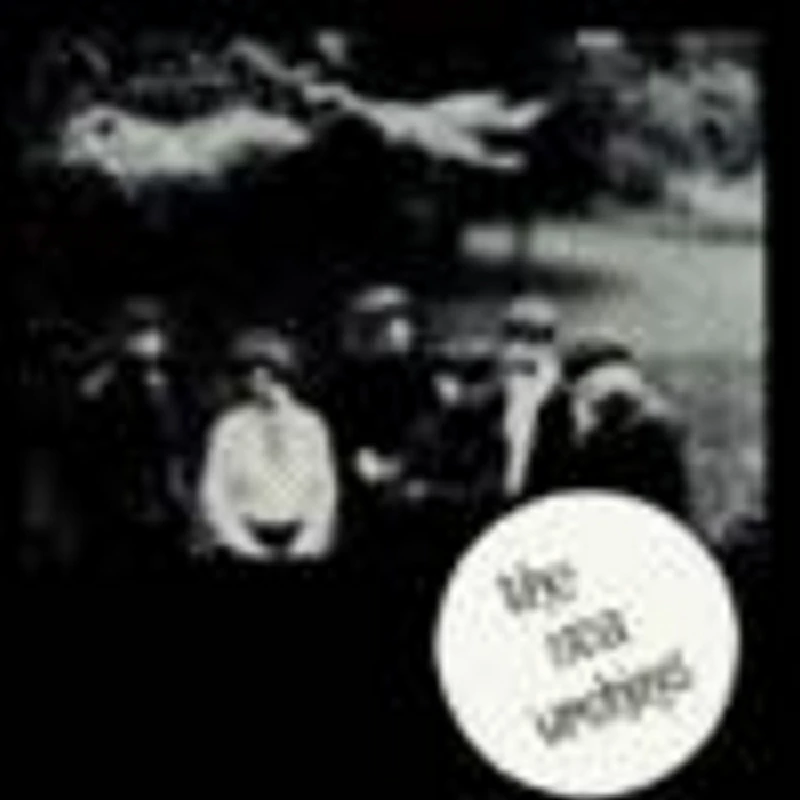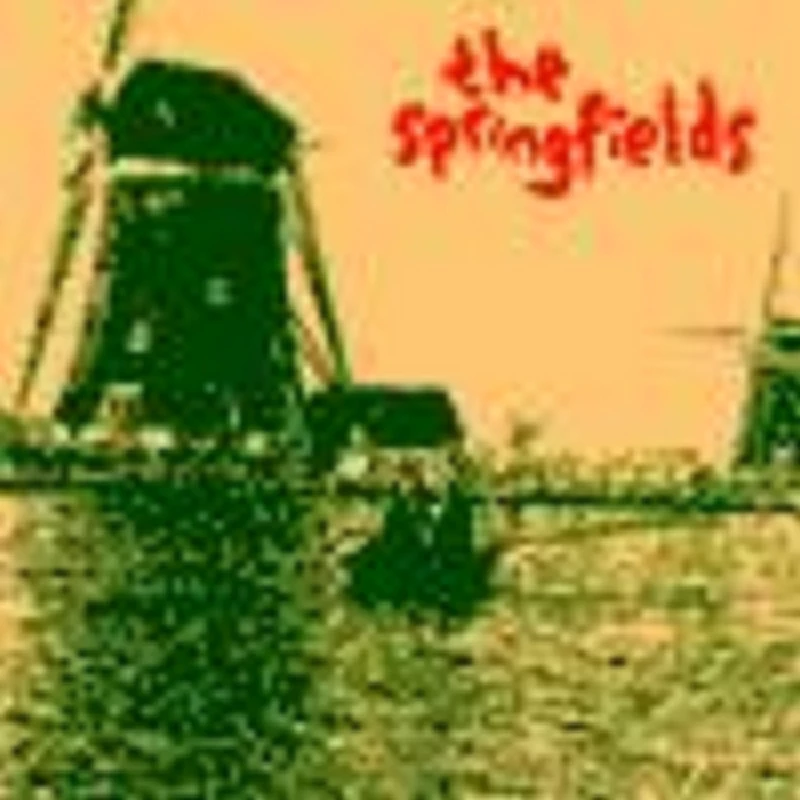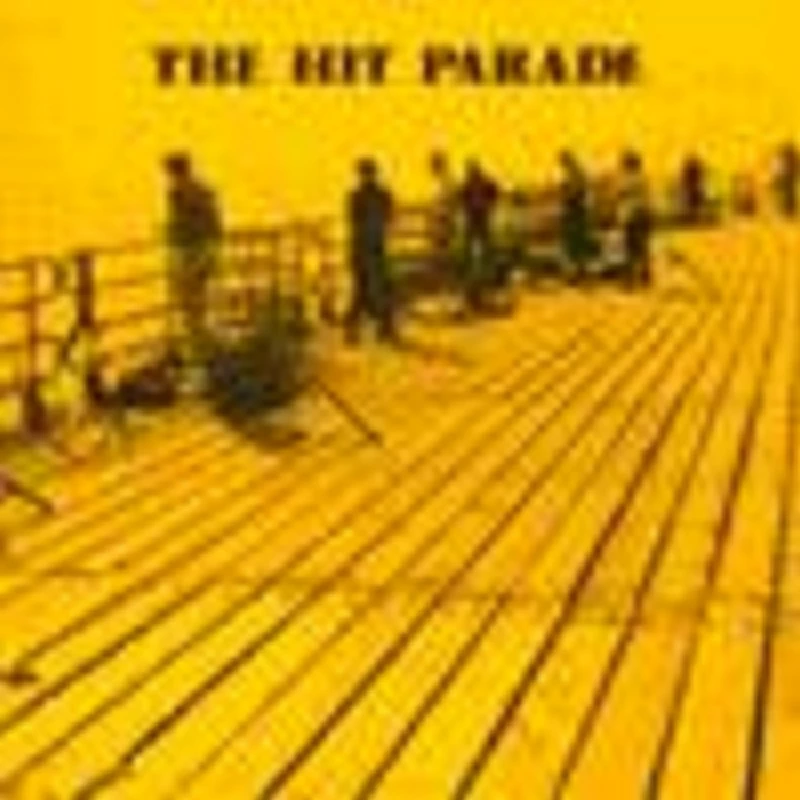Miscellaneous - Interview with Matt Haynes and Clare Wadd 1
by Julia Willis
published: 25 / 9 / 2002

intro
One of the most important independent record labels if all time, Sarah Records put out exactly 100 perfect pop releases and then stopped. In the first part of a two part interview, Julia Willis speaks to owners Matt Haynes and Clare Wadd
Sarah Records was started by Matt Haynes and Clare Wadd in a small basement flat in Bristol in 1987. Eight years later, once they’d reached 100 perfect pop releases they folded the label as a perfect pop statement. Famed for its socialist ideals and an uncompromising attitude, the label has reached cult status, much to the amusement of its protagonists. The interview below is justifiably lengthy, purely and simply because the tale of Sarah Records is just so damned compelling and if you’ve ever tried to find any information on the label, you’ve probably not had much luck. Prepare to be amazed with the rebuttal of the Manic Street Preachers and the accusation that their rejection letter stayed in Richie’s pocket ; various thoughts on feminism and the state of the record industry, and the notion that the label may or may not have been inspired by Jane Austen’s 'Emma'. Settle in with a cup of tea, 'War & Peace' never looked so flimsy… PB : Why did you name the label Sarah? Clare: It was my idea. There was absolutely no reason. I think the oddest explanation is that I was reading Jane Austen’s 'Emma' at the time and thought a girl’s name was as good a name for a record company as for a book. Matt said 'What shall we call it?’ I said Sarah off the top of my head. PB : How do you remember it Matt? Matt: Well I don’t remember the Emma bit. Although obviously we came to regret it in terms of press a bit later. Clare: We were getting bad press for being girly. Matt: I think we turned it to our advantage in the end, we got bad press for being called Sarah and not being taken seriously so we started to use that press as a positive, trying to make various political points. Clare: I’m not sure it was so positive. Would we have been more successful if I hadn’t been female and we’d used that name? I guess it was useful to shout off about feminism though! PB : Actually that was one of my next questions… you both seem to have very strong political ideas of feminism, socialism, anti-commercialism etc which is critical people who sell out. Matt: I think the only one of those I would disagree with is anti-commercial. Clare: We wanted to be commercial and to reach other people but without doing anything we disapproved of, which is pretty much impossible to do. The point with Sarah was that we believed in every single record and we thought they were all fantastic. We wanted as many people to hear them as possible. We just weren’t going to try to achieve that by putting pictures of naked women on the record sleeves. Matt: I hope that behind everything we did was the basic socialist philosophy and basic feminist philosophy. Clare: And a pro-public transport philosophy! Matt: Yes. I mean these were things we believe in and we tried to put that across in the way we released the records, it’s quite difficult to release a 7” single and make it a socialist statement though! Clare: Unless you’re releasing an obvious socialist record which we weren’t doing. PB : I think it’s your own description that said you hoped that by the time you’d reached 100 perfect pop releases, a socialist revolution would be but a handclap away! I wondered what your political machinations were and whether you were rebelling against what was going on at the time… Clare: Much of what we were rebelling against was smaller scale. We live in London now and Matt’s a Londoner, but being in Bristol was a very important thing for Sarah as well and being away from the music industry. trying to make the point that bands exist all over the country even though the press and Radio One are based in London. Matt: I think we proved that the press doesn’t pay any attention to labels outside London! Clare: Yes I think in eight years we proved quite clearly! Matt: Basically the music scene wants bands that are prepared to come to London and play in London. PB : You’d said that it was difficult to be political and run a label and inject your ideas of socialism into it. Both of you did quite a lot of writing though… Clare: I think that was how we did it really, we kind of imposed it upon the bands whether they liked it or not! We stuck inserts in, some very jokey, some half jokey. I think you’d have to be quite thick to have bought any more than two or three Sarah records and not got the fact there were politics and idealism behind the label! Matt: when we first started the label 12” singles had just come in and bands were releasing on 7” and 12” singles and making their fans buy those formats to buy all their songs and we felt that was capitalism being used wrongly. We were obviously capitalist because we were a record label and trying to make money out of it but we’d release a 7” single and put all the songs on that. When we finally got round to making CDs the same songs would be on there so people would only have to buy the one item. I think there were some political bands who would preach their ideals in interviews and even in their lyrics but when it came to marketing their own records would release on all formats making their fans buy all of them. Clare: Yeah! Limited edition colour vinyl - we hated that! Matt: I think it annoyed us that the Independent music industry liked to think of itself as very right on and left wing but when it comes down to it, it’s not. When people come to making records and making money then all those principles go out of the window. Clare: People in the late eighties were even trying to make money out of fanzines. Even though they had their student grants or jobs and we could never understand why people expected to make money out of what was essentially a pretty shoddy piece of work. It just seemed to lose what the whole thing was about. Although we don’t disagree that people should make a living. When we were doing Sarah we were doing hundred hour weeks for the best part of eight years and the idea that you shouldn’t be making money is ridiculous as you’re obviously putting a lot of work in. I think it’s great if bands and songwriters can make a living but you have to put some effort in to achieve that. Matt: Another thing we were opposed to was the whole collector mentality. The idea that people would buy records because they thought they were going to be worth money in a few years time. So we were opposed to limited edition stuff. If we did a free poster or postcard with a record it came with every edition of it. Clare: I spent most of my youth folding bits of paper! Matt: Just by doing that we thought we were making a point, whether people noticed though… Clare: Some did, some didn’t. Matt: Another obvious thing which I’m not sure anyone noticed was going back to the feminist angle is that we never put pictures of women on record sleeves. Indie bands tended to use that a lot. Clare: They just get pictures of any random sixties chick with a bob and that becomes your record sleeve and then you get the girls to do backing vocals. Matt: While the rest of the world was still using women to sell everything we just felt it was worth making a stand and not using them for 7” pop singles. We had this rule that we wouldn’t be sexist so no human figures. Even having a picture of a man holding a guitar can be just as much a reinforcing of a stereotype than a picture of a cute woman. So we had this rule, no use of the human image unless there’s a very good reason for it. Clare: It pissed a lot of bands off! Actually a lot of Sarah involved pissing the bands off and trying to convince them of what we were trying to do and why. Some of them agreed with it and some were baffled, they just wanted to put a record out and ended up with two idiots from Bristol who wanted to name the records after a bus route and stick pictures of trading estates on the front! Matt: Obviously we were a record label and the music was the priority. We never signed or didn’t sign a band because of their politics, we never really asked what their politics were. I think most of the bands agreed with us even if they thought we were a little silly and took it to the extreme sometimes. Clare: They knew we were right in the end! PB : How did you get together and discuss ideas? At what point was the label born? Matt: I think there were two main threads. We’d got into the music scene independently and were each writing fanzines. Then we progressed to putting out flexidisks with the fanzines. Clare: We both put out Sea Urchins tracks. This was at the point where we hardly knew each other and I’d gone to see Matt about putting together a flexi and I got one sea urchins track off this tape and he got the other, we both got the one we liked best! Matt: That was pure coincidence really we both had completely different contacts that lead to the Sea Urchins. The next stage on from flexidisks was to release records. Clare: I was at college. I think you’d probably given the idea more thought… Matt: Certainly in my fanzine I had spent a lot of pages raving about the way the record labels behaved and going back to the formatting stuff, that was a pet topic of mine. Clare’s fanzine was more general in its content Clare: It was sort of anarcho-political. A worthy, dull fanzine… Matt: I was coming from the record label politics angle and Clare were coming from the more general left-wing angle Clare: I think the miner’s strike came into mine at one point! Matt: So we had these two politics basically coming together. Clare: It basically became, ‘How do I apply these wider politics I have to the industry I love and everyday life on a more micro scale?’ Matt: Basically both of us had written about all these things publicly in our fanzines. We couldn’t really have started Sarah without putting some of those ideals into practice! Right from the very first release we knew exactly what we had to do if we weren’t going to be accused of hypocrites. Clare: Also it was very much what we wanted to do. We proved you could do it without all this formatting crap. We never got anything into the charts. Matt: Actually the Orchid’ track Sugar Daddy got to number 63 one week. Clare: I thought it was 97! I don’t think we would ever have got anything in the charts. You have to buy all the right press and advertising. It’s so easy though to bring a whole record label down by throwing all your resources at one band. I think the Flatmates scraped the Top 40. I don’t think there was ever one band we wanted to risk bankrupting ourselves or the label for though. Matt: You need a band that’s prepared to put fulltime work in and most of the bands weren’t in a position to do that really. Clare: Sarah was for the bands who didn’t want to go outside of their bedrooms and didn’t want to be photographed and didn’t want to jump through all the hoops you’d have to jump through. Matt: A lot of the bands complained about being tagged as Sarah bands the whole time but they were the ones who actually didn’t make the effort to ever step outside the Sarah umbrella. Clare: We did organise a few Sarah nights but if the bands didn’t arrange their own gigs we ended up being their managers, their tour managers and gig agents! They did end up playing Sarah nights because that’s what people rang up and offered us but they also had the option to put themselves out and forge their own identities. If they didn’t do that then we had a ready made identity for them. Matt: I think the perception was that we were a very small label and I don’t think that’s true because at its peak it was doing about a quarter of a million turnover. This was the time when Steve Lamacq was playing one of our records on the radio and saying ‘this is a very small label from Bristol’. The token play of one of our releases because he thought we were small and he wanted to help us along! We never borrowed money except to start the label in the first place but from Sarah 1 onwards we were always making money. Clare: We made £525 from the first record! Matt: The first year I was on an allowance scheme which gave me £40 a week to run my own business for a year. By the end of the first year we were making enough for me to work on the label fulltime. Clare was still at university by the time she finished university we could just about run the label fulltime and pay a wage to both of us. I guess ‘wage’ might be a slight exaggeration! Clare: I think we went out once didn’t we?! Matt: When we went to gigs we’d hitch as we didn’t have enough money for trains. Clare: How NOT to impress bands, by hitching to their gigs! Matt: We slept rough on the hillside afterwards on a couple of occasions. Even the last Heavenly tour, when I was going round selling CDs and records for them, I remember sleeping at Manchester airport. PB : Did the bands that you released come to you or did you approach them? Your idea was to release 100 perfect pop records and so how did you choose who you signed? Clare: I think the original idea was 50 perfect releases actually! We were having fun by fifty so carried on. PB : What made you think you were going to shut up shop at 100? You’ve not really done any reunions either since… Matt: I think we always knew we were going to do that. We never wanted to be one of those labels that gradually petered out. PB : Was 100 your manifesto from the beginning? Matt: It would be nice to say so but no, it wasn’t originally! Clare: I think by the time we got to 45 we were doing really well and the head of our distribution company said ‘What are you going to do for 50?’ He looked really put out when we told because we were one of his top ten labels. So we actually did a board game. So when we got to 100 and he asked us again we said we really were going to stop! He had Oasis by that time so we weren’t so important. I think by the time we’d got to 50 we knew we were going to stop at 100. PB : Why? Matt: It seemed the perfect way to end a label. No one else had done that. Clare: Most record labels either get bought out, sell out, go bankrupt or just fizzle out. We weren’t interested in any of those options and you start to think, ‘What options are there?’ You quit when you think every record is perfect. You don’t want to get to the stage where you put out the next record and you feel it wasn’t as good as the last one, you just want to love each and every one! Matt: Probably the most annoying thing is when we read in the press that Sarah went bankrupt or went out of business. We just stopped, it was a conscious decision. We didn’t tell anybody which was the other great thing! It annoyed a few people afterwards. We told absolutely no one at all! Clare: We didn’t tell any of the bands! I can’t remember when we told them. I do remember being an incredibly evasive person! I was actually living in London until about a year before we stopped. I socialised quite a bit with Heavenly and I remember Cathy saying to me ‘I remember you’re going to stop at number 100’ and me saying, ‘Yeah I’ve heard that too…’ and that was the end of the conversation! We did get stuck on about 97 for ages and finding three more records was actually quite difficult! Matt: I think there were maybe a couple of bands that wanted to do new singles and we had to tell them and ask that they kept it quiet. Basically around number 97 we started telling people. But we tried to keep it as quiet as we could. Clare: I do think mainly we rang everyone on pretty much the same day. PB : How did they take it? Matt: I think most people were really impressed actually, no one was really annoyed. Clare: I think some people were a little, although they understood why. Matt: I do think they respected our decision to do it. There was a French magazine called 'Magic' that came over to do a big feature on us around Sarah 97 or 98 and obviously we couldn’t tell them because it would have been awful if big news had appeared in a French fanzine rather than us announcing it ourselves. We couldn’t tell them we didn’t want to do the interview so we had to do the whole thing without mentioning it! They were doing it to celebrate Sarah 100. It was their big feature. Clare: By the time the article came out we had actually stopped because there were a bi-monthly. Matt: They were slightly put out. Our public announcement were the pages we took out in the NME and Melody Maker which I don’t think most other labels would have done. Clare: Well we did spend about three grand on advertising the fact that we were going to stop and throw a party that would fit about 400 people through the door and would break even as we were charging a fiver to get in. Matt: I think that was a lovely gesture rather than spend all this money doing a compilation or reissuing old stuff that people wanted but to spend all the money to take out advertisements to say goodbye. Clare: I do miss that, spending money on advertising to say what we wanted to say and by the way we’ve got a record out too! Matt: Another landmark was us putting in a quarter page ad to the Melody Maker the top word just said ‘Capitalism?’. It was our five-year advert. It went on about formatting. It basically said Capitalism is Wrong. PB : Do you think those adverts achieved anything? Matt: Certainly not on the scale we wanted. I think there are an awful lot of labels that copied Sarah and the ethics and aesthetics behind it. Clare: I don’t think anyone’s really taken the politics on board though, even though you don’t really want people to do that, you want to have your own ideas. Matt: I am sure that someone from the Rough Trade shop said that at one stage we had basically kept the 7” single alive as everybody was swapping to 12”. Now a few years later 7” singles are the hippest thing in the world and they’re still doing them now. At that time 7”s were going completely and we were the only label still doing them.
Label Articles:-
Sarah (2)Picture Gallery:-




most viewed articles
current edition
John McKay - InterviewCathode Ray - Interview
Robert Forster - Interview
When Rivers Meet - Waterfront, Norwich, 29/5/2025
Spear Of Destiny - Interview
Fiona Hutchings - Interview
Carl Ewens - David Bowie 1964 to 1982 On Track: Every Album, Every Song
Chris Wade - Interview
Shrag - Huw Stephens Session 08.12.10 and Marc Riley Session 21.03.12
Brian Wilson - Ten Songs That Made Me Love...
previous editions
Heavenly - P.U.N.K. Girl EPBoomtown Rats - Ten Songs That Made Me Love....
Manic Street Preachers - (Gig of a Lifetime) Millennium Stadium, Cardiff, December 1999
Allan Clarke - Interview
Oasis - Oasis, Earl's Court, London, 1995
Barrie Barlow - Interview
Beautiful South - Ten Songs That Made Me Love...
Pixies - Ten Songs That Made Me Love...
Chuck Prophet - Ten Songs That Made Me Love...
Dwina Gibb - Interview
most viewed reviews
current edition
Peter Doolan - I Am a Tree Rooted to the Spot and a Snake Moves Around Me,in a CircleVinny Peculiar - Things Too Long Left Unsaid
Garbage - Let All That We Imagine Be The Light
Vultures - Liz Kershaw Session 16.06.88
John McKay - Sixes and #Sevens
Little Simz - Lotus
HAIM - I Quit
Pulp - More
Lapsley - I'm a Hurricane, I'm a Woman In Love
Billy Nomates - Metalhorse
Pennyblackmusic Regular Contributors
Adrian Janes
Amanda J. Window
Andrew Twambley
Anthony Dhanendran
Benjamin Howarth
Cila Warncke
Daniel Cressey
Darren Aston
Dastardly
Dave Goodwin
Denzil Watson
Dominic B. Simpson
Eoghan Lyng
Fiona Hutchings
Harry Sherriff
Helen Tipping
Jamie Rowland
John Clarkson
Julie Cruickshank
Kimberly Bright
Lisa Torem
Maarten Schiethart